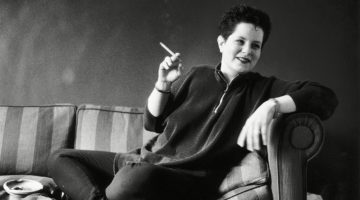5 Questions with Josh Mond of James White
Josh Mond is the writer and director of the critically acclaimed James White. Though the film is Mond’s first feature as an auteur, he has made a number of shorts, and has produced films as part of a filmmaking partnership with Antonio Campos and Sean Durkin. The film has received a tremendous response, and we spoke to Campos by phone from New York City, where he was very open and honest in his responses.
Scene Creek: How do you feel about your film being released now?
Josh Mond: It’s been great in terms of timing. Got its launch at Sundance, and was seen by everybody. I was able to take it around the world and Toronto was such an important part of that because it really launched the film before its release. It reminded people that we were still here. And because Toronto has such a big platform, it was a huge amount of respect. It was really fitting, you know, it was really nice to be able to come out at s competitive time, where there was a possibility for Christopher (Abbott) and Cynthia (Nixon) to be acknowledged for their work.
Scene Creek: What do you think of the reaction?
Josh Mond: It’s pretty surreal, I mean, I make movies and I see movies in order to connect. It’s a good feeling, you know, to be able to connect with people. I’ve been in the business since I was a kid, kind of seduced by the family aspect of it, the cameraderie, connecting with partners Sean Durkin and Antonio Campos thirteen years ago, with the intent of all three of us becoming directors. I wasn’t ready, and even though I enjoy producing, this was the goal, you know, to become a director and to do this. We’re still producing and we’re still supporting other filmmakers. We have two films at Sundance this year. Antonio’s film (Christine) is…brilliant. Antonio is a genius. And we have another film called The Eyes of My Mother which was my assembly editor, basically. We met through one of my producers, and we just became really good friends. He told me he’d be making a movie and then years later he was. It’s all organic, if it feels right, it’s right.
Scene Creek: Did you envision your cast from the very start?
Josh Mond: No! I’ve known Christopher Abbott for about five, six years now. We really got to know each other on Martha Marcy May Marlene, and we’ve been really close friends since then, and I did an experimental short film before this, and he did it, and a lot of it was filming really close to his face. When I got to the editing room, I was blown away by a lot of the stuff he was doing that I didn’t realize he was doing on the set. He was amazing, and I went back to writing, I called him was I was done writing and told him that I was doing it for him. So I was able to visualize him in the film halfway through writing. With Cynthia, I was able to get her the script, and we met for breakfast, and just really got along. She shared her personal experience with me, and she had lost her Mom a couple of months prior to reading it, it just seemed right, you know? I was really lucky to have them.
Scene Creek: How did you come to cast Ron Livingston as the responsible office worker?
Josh Mond: His wife Rosemarie Dewitt was in our short films, and in Antonio’s feature Afterschool. We’ve known her for a while now, and through her, we’ve gotten to know Ron and I was thinking about him briefly, and then I went to a drive-in movie theatre in Upstate New York, and I was watching The Conjuring, and it just all came flooding in, because Ron is one of those guys that you kind of want to like, hug, do you know what I mean? Like, he knows what is going on. For me, I feel like that’s the energy that he has innately. He’s someone who really cares, not just as a person, but as an actor as well.
Scene Creek: What do you get out of films?
Josh Mond: I watch films to be inspired, but I also watch films to make me feel okay, like, ‘it’s okay to feel this way’. Some of the things that we are afraid to talk about in real life, we can talk about in movies and that’s like secrets, you know? Things that were too uncomfortable to say out aloud, and you say “oh fuck, shit, it’s okay to feel that, it’s okay to feel that way”.


